We are proud to be a Clean Label product!
LACTOGG/LACTOGG®+ is committed to the principles of clean health and sustainability.
1. Clean ingredients
LACTOGG® capsules are veggie capsules produced from non-GMO plant material. The “GG” bacteria (L. rhamnosus GG [ATCC 53103]) are a strain originally isolated from the microbiota of a healthy human. “GG” bacteria are natural good bacteria which have adapted to live with humans when bacteria and human evolve together through the ages. Therefore the “GG” strain is natural, safe and has not undergone genetic modification in any way.
The inulin in LACTOGG® capsules and Fructooligosaccharide (FOS) in LACTOGG®+ sachets are ISO-verified, natural dietary fibres.
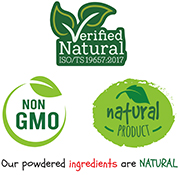
LACTOGG/LACTOGG®+ powdered contents do not contain preservatives, artificial flavouring, flavour enhancers, sweeteners or artificial colouring. It does not contain maltodextrin (E965), an artificially produced food additive commonly found in probiotic products.
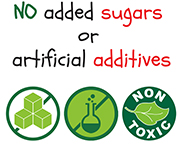
It is a vegetarian product.
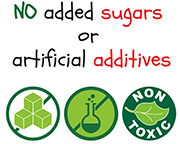
2. Clean manufacture
The “GG” probiotic is cultured under Good Manufacturing Practice (GMP) which ensures that it does not contain cow milk protein, soy protein, yeast or gluten. This makes LACTOGG® a doctor’s trusted partner in people with allergies.

In order to obtain ISO-verification as being “natural” the source of inulin and FOS has been proven to be naturally grown chicory. These dietary fibres are extracted from the vegetable without using any chemicals to preserve the original configuration of the dietary fibres.
Every batch of LACTOGG® capsule or LACTOGG®+ sachet undergoes a comprehensive laboratory analysis before release to ensure its cell count (cfu) complies with its label and that it does not contain bacterial and mould contaminants.
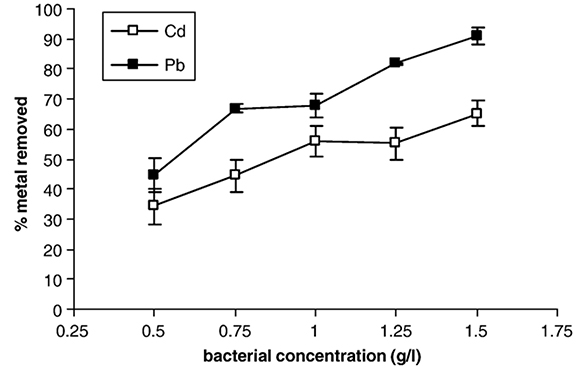
Binding of cadmium and lead in water by L. rhamnosus GG (ATCC 53103)
[Halttunen et al. 2007]
One of the ways to fulfil our social responsibility is to support 3R initiatives. Since 2008 we have been giving out reusable shopping bags, both small and large, to our “GG” fans.
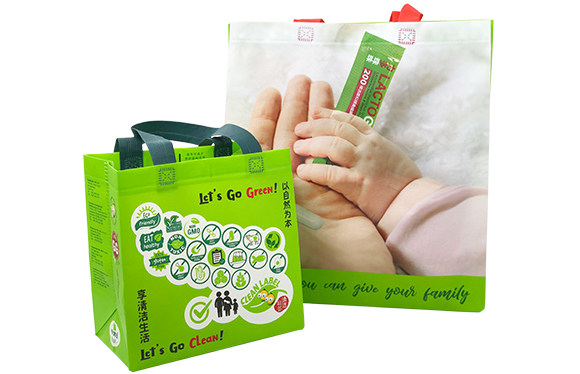
By using the lightweight yet strong and durable shopping bag, it is hoped that we can reduce single-use plastic bags, one person at a time.
LACTOGG®’s Green Bag is made from non-woven polypropylene (PP) material. It is not biodegradable but it is reusable and can be recycled. PP is an inert material and does not leach chemicals into soil or water, nor does it disintegrate into microplastics, making it safe for human and animal life. Degradation may be hastened when exposed to UV-light.
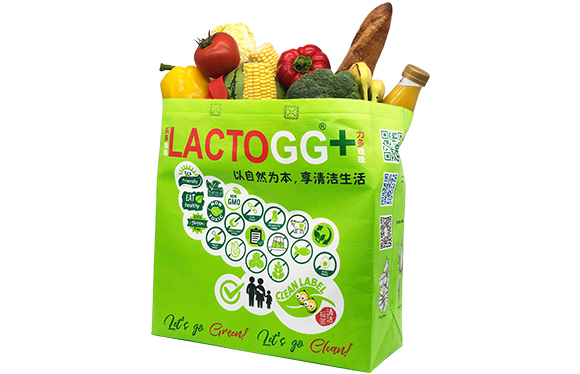
This table estimates how our reusable shopping bags which can last 2 years or more, can save the planet from being polluted with over 500 single-use plastic bags a year!
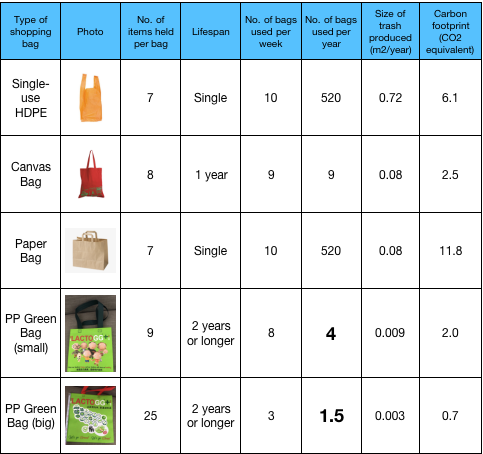
HDPE= high density polyethylene PP= Polypropylene
Table 1 Comparison chart of the impact of selected shopping bags on the environment. [Based on “Plastic Shopping Bags - Analysis of Levies and Environmental Impacts”; Environment Australia, 2002]
Please re-use our Green Bags. No matter how small a step, it still helps towards achieving a clean and sustainable environment!
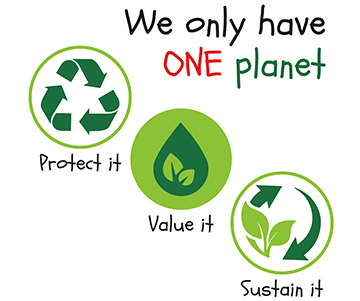
5. Clean Label
Using Australia’s Health Star Rating System of nutritional value, LACTOGG®️+ achieves the maximum 5-star score!
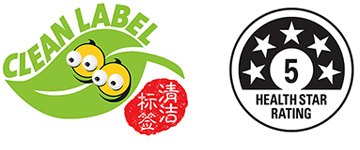
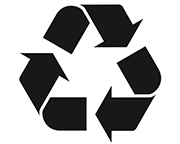
References:
Halttunen T et al. Rapid removal of lead and cadmium from water by specific lactic acid bacteria. Int J Food Microbiol 2007;114:30-5
Bouhnik Y et al. The capacity of short-chain fructo-oligosaccharides to stimulate faecal bifidobacteria - a dose-response relationship study in healthy humans. Nutr J 2006;5:8
Laudisi F et al. Impact of food additives on gut homeostasis. Nutrients 2019;11(10);2334
Shelburne III S A et al. Maltodextrin utilization plays a key role in the ability of Group A Streptococcus to colonize the oropharynx. Infect Immun 2006;74(8):4605-14
Nickerson KP et al. Crohn’s Disease-associated adherent-invasive Escherichia coli adhesion Is enhanced by exposure to the ubiquitous dietary polysaccharide maltodextrin. PLoS ONE 2012;7(12):352132
